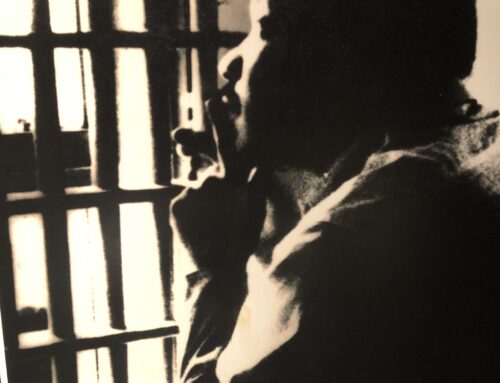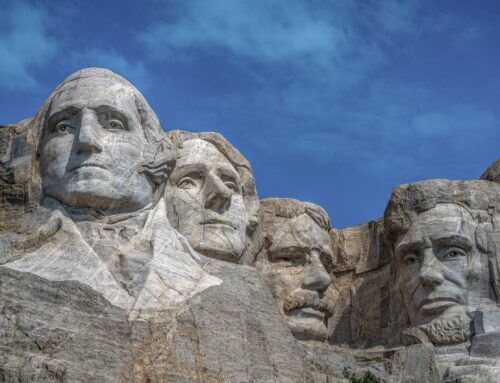
Credit Getty Images
Unbelievable.
Who picked Denver in November to win the Super Bowl? On January 3, I was watching as Denver turned the ball over five times against the Chargers with backup quarterback Peyton Manning on the bench. When the coach called number 18, everything changed and the Broncos charged back to win. Who picked Denver to beat the Patriots? And while a lot of us were rooting for a storybook ending for Peyton (we’re on a first-name basis now), who really picked Denver to shut down Cam Newton and the Panthers in Super Bowl 50?
It was an amazing defensive performance. Defensive Coordinator Wade Phillips deserves a lot of credit and big bonus for preparing his squad to dominate every post-season offense they met. But the Denver story is about leadership. Although Peyton is 39 and may be too old and injured to take many more snaps or complete many more passes, it is clear he is not too old to lead. Coaches coach better, players play better, and fans cheer louder when he is on the field. His love for his teammates, his eagerness to share the credit, his discipline in preparation, and his refusal to give up make him the kind of guy we all can admire. He is a winner that makes everyone around him a winner, and that was never truer than on Sunday night as the Denver Broncos became Super Bowl Champions.
And then with confetti falling, CBS sideline reporter Tracy Wolfson could not resist asking Peyton about his future. Was this his last game? He said he wanted time to reflect. He wanted to kiss his wife and kids. And then he said, “I’m going to drink a lot of Budweiser tonight. I can promise you that.”
What? Rewind. Did he just say that? Yes he did. If you missed it, he said it again at the trophy ceremony with Jim Nance. He was discounted. He was injured. He was booed off the field. He was benched. Then he was better. Then he was called into the game. Then he led his team to through the playoffs. Then he won his second Super Bowl with his second team (the only guy in history to do that), and he said, “I’m going to drink a lot of Budweiser tonight. I can promise you that”?
Before you think I’m going judgmental, don’t. I get it. I think I know why those words came from his mouth…twice. Of course, I do not know his heart, but I think I am more like Peyton than I’m not. I do not have his natural talent. I do not have his natural drive. I do not have his power of presence. I do not have his uncommon discipline. But we are a lot alike.
Time for full disclosure: I do not drink alcohol. It just seems unwise and unnecessary. Besides that, I do not need any more temptations in my life that could detour my faithfulness to God, family, or friends. But, and this important, I do not love you any less if you choose to drink. I can genuinely enjoy our friendship, respect you, and overlook that difference among many others. But beer drinking is not the big issue here.
King Solomon of the Old Testament had wealth, women, wisdom, and a lot of wins, but he finally admitted that none of those things satisfied his heart. He called it the “pursuit of the wind” (Ecclesiastes 1:17). It is this never-ending chase for a satisfaction we can never achieve.
It is the reason the 40 year-old man leaves his wife and children. It is the reason the millionaire defrauds her clients for a few hundred dollars. It is the reason the Valedictorian plagiarizes his final paper. It’s the reason the sports icon crashes his 9-iron into his wife’s SUV. Our best wins never satisfy our hearts. Remember Solomon’s dad King David? He was victorious on every front, yet in his success he looked for more. Even the remarkably talented Mick Jagger reminds us, “we can try and we can try and we can try, but we just can’t get no satisfaction.”
That may be true, but what is the problem with enjoying an ice-cold beer after a successful day at the office? I am not sure, but that is not what Peyton said…twice. Instead he said, “I’m going to drink a lot of Budweiser tonight. I can promise you that.”
Beer and football share a long and prosperous relationship with one another. Who does not love the Budweiser commercials of the last 30 years? We all have our favorites. So it is no surprise that Peyton Manning or anyone else would pop one open after a Super Bowl win. But it is also no surprise that “Drink Responsibly” may not be the most reasonable motto for the beer industry. Not only did beer get a shout out on the biggest sports stage of the year, but its true character got outed by the biggest sports hero of our generation.
Alcohol does not just ask for more. It always asks for a lot more. But it is not alone. Some of us run to food for comfort. I dare you to leave one nacho chip in that basket. Some of us seek the approval of others. Some of us scroll through porn. Some of us hope our bank account will satisfy. Some of us need that next promotion to feel good about ourselves. Some of go from doctor to doctor for more meds that will numb the pain. And some of us (God help our children) need our kids to win that next game or that next scholarship or land that next job to feel like successful parents.
What we discovered on Sunday night is that not even a Super Bowl championship for arguably the greatest quarterback in NFL history is enough. As hard as it is to believe, Peyton joins ranks of other humans like David, Solomon, Mick Jagger, and the rest of us. Our sweetest victories never quite satisfy our hearts. Even on the heels of our best wins, we reach for a satisfaction that is just beyond our grasp. We all know better, but our hearts are prone to search for substitutes of all kinds.
And as our hearts grasp for more, Jesus says, “A thief comes only to steal and to kill and to destroy. I have come so that they may have life and have it in abundance” (John 10:10). Only Jesus won the victory that matters in the end, and now He invites us to find our greatest joy, delight, and satisfaction in Him. And no substitute, however intoxicating it may be, can ever compete with that.
Peyton gave a sincere nod to the “man upstairs” a little later in his speech, but it could be that his celebration plan was the best case for Christ we have heard at a trophy ceremony in a very long time.





